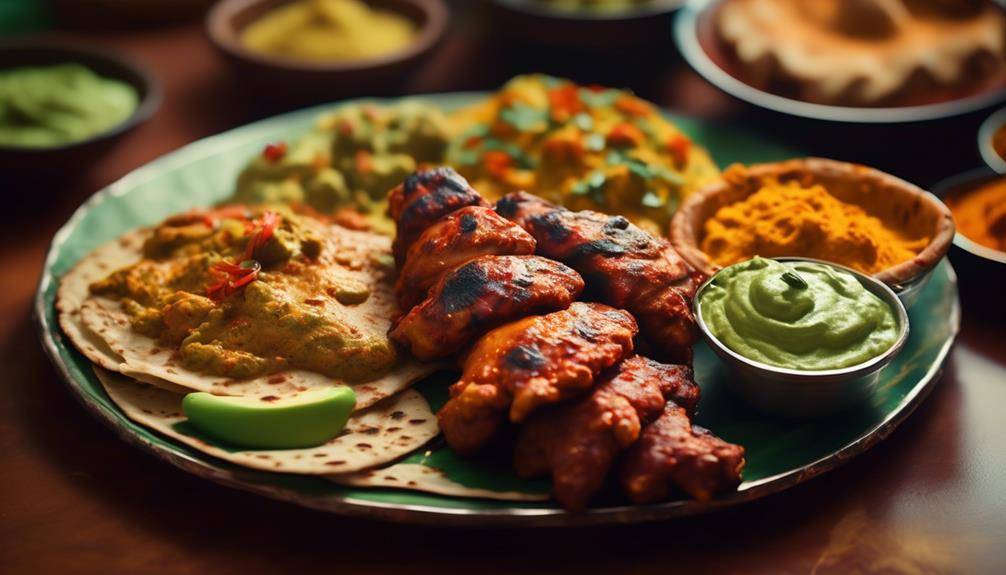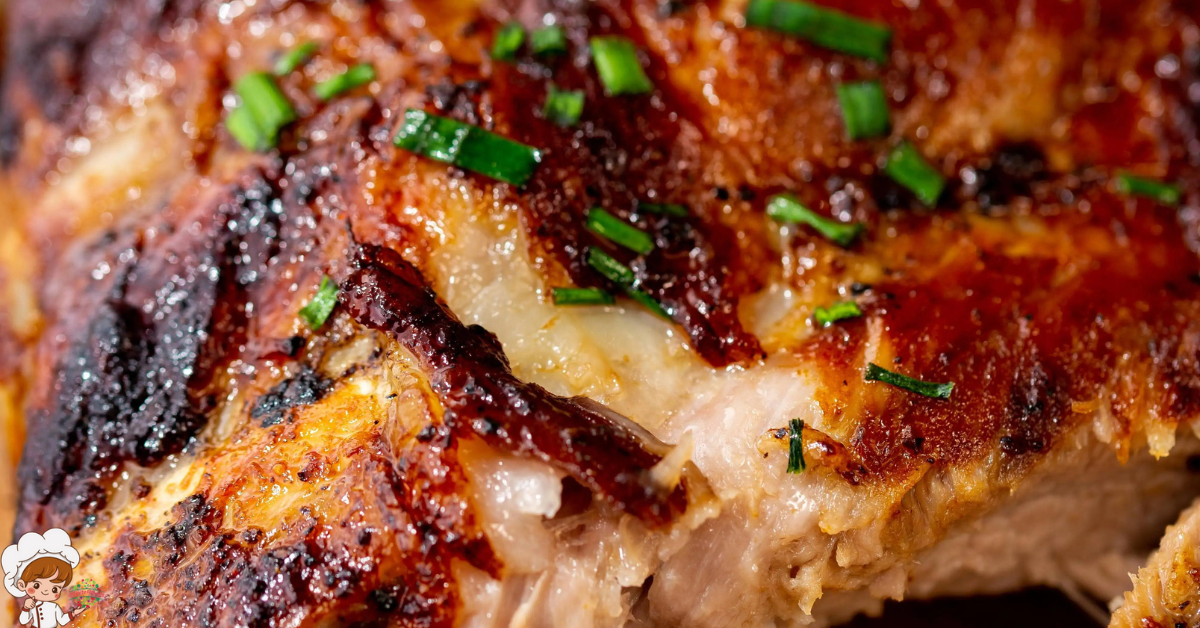The Best Ketogenic Diet Principles for Bodybuilding

Ketogenic Diet Principles for Bodybuilding; Are you tired of spending hours in the gym, only to see minimal progress in your bodybuilding journey? If so, it might be time to consider a new approach – the ketogenic diet. This low-carb, high-fat diet has gained popularity among bodybuilders for its ability to promote fat loss while preserving muscle mass. But what exactly are the principles behind the ketogenic diet for bodybuilding?
How can you implement them effectively to achieve your fitness goals? In this discussion, we will explore the key principles of the ketogenic diet, from understanding its benefits to selecting the right foods and supplements, as well as managing energy levels and transitioning out of the diet. Get ready to revolutionize your bodybuilding routine and unlock your full potential.
Understanding the Ketogenic Diet
To fully comprehend the principles of the ketogenic diet, it is essential to have a clear understanding of its fundamental concepts and how they can be applied to bodybuilding. One of the key concepts to grasp is the state of ketosis. Ketosis is a metabolic state where the body primarily uses fat for fuel instead of carbohydrates. In this state, the liver produces ketones, which are derived from fatty acids, to provide energy for the body. By significantly reducing carbohydrate intake and increasing fat consumption, individuals on a ketogenic diet can induce ketosis.
Understanding ketosis is crucial for bodybuilders following a ketogenic diet because it offers several metabolic benefits. First and foremost, ketosis promotes efficient fat burning. When the body is in ketosis, it becomes highly efficient at utilizing stored body fat as an energy source. This is particularly beneficial for bodybuilders who aim to reduce body fat while preserving lean muscle mass.
Additionally, ketosis can enhance muscle preservation during periods of calorie restriction. When following a traditional low-calorie diet, the body often breaks down muscle tissue for energy. However, in ketosis, the body primarily relies on fat for fuel, sparing muscle tissue. This is advantageous for bodybuilders who want to maintain their hard-earned muscle mass while cutting down on body fat.
Furthermore, ketosis can lead to improved insulin sensitivity. By reducing carbohydrate intake, ketogenic diets can help regulate blood sugar levels and improve insulin sensitivity. This can be beneficial for bodybuilders aiming to optimize their body composition and overall health.
Benefits of the Ketogenic Diet for Bodybuilders
Understanding the metabolic benefits of ketosis, bodybuilders can harness the power of the ketogenic diet to optimize fat burning and muscle preservation. The ketogenic diet offers several benefits for bodybuilders, making it a popular choice among fitness enthusiasts. Here are three key benefits of the ketogenic diet for muscle building:
- Enhanced fat burning: The ketogenic diet promotes the utilization of fat as the primary fuel source instead of carbohydrates. By restricting carbohydrate intake and increasing fat consumption, the body enters a state of ketosis, where it relies on stored fat for energy. This leads to accelerated fat burning, allowing bodybuilders to shed excess body fat and achieve a leaner physique.
- Muscle preservation: One concern for bodybuilders during periods of calorie restriction is the potential loss of muscle mass. However, the ketogenic diet can help mitigate this issue. Ketones, the byproducts of fat metabolism, are muscle-sparing and can serve as an alternative energy source for the body. This means that even with reduced calorie intake, the ketogenic diet can help preserve muscle mass, allowing bodybuilders to maintain their hard-earned gains.
- Improved insulin sensitivity: Insulin sensitivity plays a crucial role in muscle building and overall health. The ketogenic diet has been shown to enhance insulin sensitivity, leading to better glucose control and nutrient partitioning. This means that nutrients, such as protein and amino acids, are efficiently utilized by the body for muscle repair and growth. By optimizing insulin sensitivity, the ketogenic diet can support muscle building efforts.
Macronutrient Ratios for a Ketogenic Diet
When it comes to following a ketogenic diet for bodybuilding, understanding the optimal macronutrient ratios is essential. The key principle of a ketogenic diet is to consume low carbohydrates, typically around 5-10% of total calories, to induce a state of ketosis, where the body uses fat as its primary fuel source. Adequate protein intake is also important to support muscle growth and repair. By striking the right balance between low carbs and sufficient protein, bodybuilders can optimize their body composition and performance on a ketogenic diet.
Optimal Macronutrient Ratios
Achieving optimal macronutrient ratios is crucial for a successful ketogenic diet in bodybuilding. To ensure you’re getting the right balance, consider the following:
- Optimal fat intake: Since a ketogenic diet relies on fat as the primary source of energy, it’s important to consume enough healthy fats. Aim for a high-fat intake, typically around 70-75% of your total daily calories. Include sources like avocados, nuts, seeds, and fatty cuts of meat.
- Balancing micronutrients: While focusing on macronutrients, don’t forget about micronutrients. Include a variety of low-carb vegetables to ensure you’re getting essential vitamins and minerals. Spinach, broccoli, and kale are excellent choices.
- Protein moderation: While protein is important for muscle growth and repair, excessive protein intake can hinder ketosis. Aim for a moderate protein intake of around 20-25% of your daily calories. Opt for lean sources such as chicken, fish, and tofu.
Importance of Low Carbs
To maintain the desired macronutrient ratios for a ketogenic diet in bodybuilding, it is essential to recognize the significance of limiting carbohydrate intake. The benefits of a low carb diet for bodybuilding are numerous. Firstly, by restricting carbs, you force your body to shift from using glucose as its primary fuel source to using stored fat for energy. This can lead to increased fat burning and weight loss.
Additionally, low carb diets can help regulate blood sugar levels and improve insulin sensitivity, which is crucial for muscle growth and overall health. Furthermore, carb restriction can enhance mental clarity and focus, as well as reduce inflammation in the body. Overall, the effects of limiting carb intake in bodybuilding are highly beneficial and can contribute to achieving your fitness goals.
Adequate Protein Intake
What is the importance of adequate protein intake in a ketogenic diet for bodybuilding? Protein is essential for muscle growth and repair, making it a crucial component of a bodybuilder’s diet. When following a ketogenic diet, it is important to ensure that you are consuming enough protein to support your bodybuilding goals. Here are three reasons why adequate protein intake is important in a ketogenic diet for bodybuilding:
- Muscle building: Protein provides the building blocks for muscle growth. Consuming enough protein can help you build and maintain lean muscle mass while on a ketogenic diet.
- Recovery: Intense workouts can lead to muscle damage. Protein helps repair and rebuild damaged muscle tissue, aiding in post-workout recovery.
- Satiety: Protein is more filling than carbohydrates or fats, which can help control hunger and prevent overeating.
To meet your protein requirements on a ketogenic diet, focus on protein sources like lean meats, fish, eggs, and dairy products. Aim for a daily protein intake of around 0.8-1 gram per pound of body weight to support muscle growth and recovery.
Choosing the Right Foods for Keto Bodybuilding
Looking to optimize your ketogenic diet for bodybuilding? Let’s explore the key principles for choosing the right foods to fuel your gains. When it comes to a keto bodybuilding diet, choosing the right fats is crucial. Aim to consume healthy, high-quality fats such as avocados, nuts and seeds, olive oil, and coconut oil. These fats provide essential nutrients and help maintain a state of ketosis.
Tracking carbohydrate intake is another important aspect of a keto bodybuilding diet. To stay in ketosis, it’s essential to limit your carbohydrate intake to around 20-50 grams per day. Focus on consuming low-carb vegetables like broccoli, spinach, and kale, as they provide essential vitamins and minerals without significantly increasing your carbohydrate intake.
In addition to fats and carbohydrates, protein is crucial for muscle growth and repair. Include high-quality protein sources in your diet, such as lean meats, poultry, fish, and eggs. These foods are not only rich in protein but also contain essential amino acids that support muscle development.
To further enhance your bodybuilding goals, consider incorporating supplements such as creatine and branched-chain amino acids (BCAAs). Creatine can help improve strength and power, while BCAAs aid in muscle recovery and reduce muscle breakdown.
Lastly, hydration is key. Drink plenty of water to support optimal muscle function, prevent dehydration, and promote overall health.
Meal Planning and Prepping for Success
Now that you understand the principles of choosing the right foods for a ketogenic bodybuilding diet, let’s move on to the next step: meal planning and prepping for success. Meal prepping is an essential aspect of maintaining a healthy and consistent ketogenic diet. By preparing your meals in advance, you can ensure that you have nutritious options readily available and avoid the temptation of unhealthy choices. Here are three key points to consider when it comes to meal planning and prepping for success:
- Plan your meals: Take the time to plan your meals for the week ahead. This will help you stay on track with your ketogenic diet and ensure that you have all the necessary ingredients on hand. Consider creating a meal plan that includes a variety of protein sources, healthy fats, and low-carbohydrate vegetables.
- Prep your meals in advance: Once you have planned your meals, take some time to prep them in advance. This can involve cooking and portioning out your protein sources, chopping vegetables, and preparing any sauces or dressings. By doing this, you can save time during the week and have healthy meals ready to go.
- Track your nutrition: It is important to track your nutrition when following a ketogenic diet. This involves keeping track of your macronutrient intake, including the number of grams of carbohydrates, protein, and fat you consume each day. There are several apps and websites available that can help you track your nutrition and ensure that you are staying within your desired macronutrient ratios.
Supplements to Support Your Keto Bodybuilding Journey
To support your keto bodybuilding journey, incorporating supplements into your routine can provide additional benefits and aid in achieving your fitness goals effectively. When following a ketogenic diet, it is important to choose supplements that are keto-friendly and support your body’s nutritional needs. Here are some supplement recommendations that can enhance your keto bodybuilding experience.
- Electrolytes: When following a keto diet, your body may experience a loss of electrolytes, such as sodium, potassium, and magnesium. Supplementing with electrolytes can help maintain proper hydration, muscle function, and prevent cramping.
- MCT Oil: Medium-chain triglycerides (MCTs) are a type of fat that can be easily converted into ketones, providing a quick source of energy for your body. Adding MCT oil to your diet can help increase your ketone levels and boost your energy during workouts.
- Creatine: Creatine is a popular supplement among bodybuilders, and it can benefit those following a ketogenic diet as well. It enhances muscle strength, power, and endurance, allowing you to push harder during your workouts and achieve better results.
- Branched-Chain Amino Acids (BCAAs): BCAAs are essential amino acids that play a crucial role in muscle growth and recovery. Since the keto diet is low in protein, supplementing with BCAAs can help preserve lean muscle mass and support muscle repair.
- Omega-3 Fatty Acids: Omega-3 fatty acids are known for their anti-inflammatory properties and can aid in recovery and reduce muscle soreness. They are also beneficial for overall heart health.
Remember to consult with a healthcare professional or a registered dietitian before incorporating any new supplements into your routine. They can provide personalized guidance based on your specific needs and goals. With the right keto-friendly supplements, you can optimize your bodybuilding journey and achieve the results you desire.
Training Strategies for Maximizing Results on Keto
To maximize your results on a ketogenic diet, it is important to consider optimal exercise frequency and the timing of your nutrient intake. Research suggests that a combination of resistance training and cardiovascular exercises performed 3-4 times a week can help promote muscle growth and fat loss. Additionally, consuming a balanced meal with adequate protein and carbohydrates before and after your workouts can support muscle recovery and fuel your training sessions.
Optimal Exercise Frequency
For maximizing your results on a ketogenic diet, it is important to consider the optimal exercise frequency and training strategies. Here are three key points to keep in mind:
- Exercise intensity: When following a ketogenic diet, your body relies on fat for fuel instead of carbohydrates. To maximize your results, focus on high-intensity exercises that challenge your muscles and increase your heart rate. This can include weightlifting, HIIT workouts, or circuit training.
- Recovery strategies: Since the ketogenic diet can be taxing on your body, it is crucial to prioritize recovery. Make sure to incorporate rest days into your exercise routine to allow your muscles to repair and grow. Additionally, consider incorporating strategies such as foam rolling, stretching, and adequate sleep to optimize recovery and prevent injuries.
- Individualized approach: Remember that optimal exercise frequency can vary from person to person. It is important to listen to your body and adjust your training schedule accordingly. Some individuals may benefit from working out multiple times a week, while others may thrive with less frequent sessions. Experiment and find a frequency that works best for you and your goals on the ketogenic diet.
Timing of Nutrient Intake
Maximize your results on a ketogenic diet by strategizing the timing of your nutrient intake to optimize training. Nutrient timing, particularly post-workout nutrition, plays a crucial role in supporting muscle recovery and growth. After an intense workout, your body is primed to absorb and utilize nutrients more efficiently. Consuming a meal or snack that contains a combination of protein and carbohydrates within 30 minutes to an hour after your workout can help replenish glycogen stores and initiate muscle protein synthesis.
This can lead to enhanced muscle repair and growth. However, on a ketogenic diet, it’s important to choose low-carbohydrate options that still provide an adequate amount of protein. Consider options like lean meats, fish, eggs, and vegetables to meet your post-workout nutrient needs while staying in ketosis.
Managing Energy Levels and Performance on Keto
Managing energy levels and performance on the ketogenic diet requires careful attention to nutrient intake and strategic meal planning. The ketogenic diet, which is high in fat, moderate in protein, and low in carbohydrates, can lead to a decrease in energy levels and performance if not managed properly. Here are three key strategies to help you manage fatigue and optimize recovery on the ketogenic diet:
- Adequate Fat Intake: Ensuring you consume enough healthy fats is crucial for maintaining energy levels and supporting optimal performance. Fats are the primary fuel source on a ketogenic diet, so it is important to include sources such as avocados, nuts and seeds, olive oil, and coconut oil in your meals.
- Sufficient Electrolyte Balance: Electrolyte imbalances can contribute to fatigue and decreased performance on the ketogenic diet. To prevent this, be sure to consume adequate amounts of sodium, potassium, and magnesium. Foods like leafy greens, bone broth, and sea salt can help replenish electrolytes.
- Strategic Carbohydrate Timing: While the ketogenic diet is low in carbohydrates, strategic carbohydrate timing can be beneficial for managing fatigue and optimizing recovery. Consuming a small amount of carbohydrates before and after workouts can help replenish glycogen stores and support muscle recovery.
Transitioning Out of the Ketogenic Diet
Transitioning out of the ketogenic diet requires a gradual reintroduction of carbohydrates while still maintaining a focus on nutrient-dense foods. When transitioning out of the ketogenic diet, it’s important to do so gradually to avoid any adverse effects on your body. Here are some transitioning tips to help you maintain muscle mass during this process.
- Increase carbohydrate intake slowly: Start by adding small portions of healthy carbohydrates, such as whole grains, fruits, and legumes, to your meals. This gradual increase will allow your body to adjust to the higher carbohydrate intake and avoid sudden spikes in blood sugar levels.
- Monitor your protein intake: During the ketogenic diet, you may have relied heavily on fat for energy. As you reintroduce carbohydrates, it’s important to ensure you’re still consuming an adequate amount of protein to support muscle growth and repair. Aim for around 1.2-1.7 grams of protein per kilogram of body weight.
- Focus on nutrient-dense foods: While transitioning, prioritize nutrient-dense foods to ensure you’re getting all the essential vitamins and minerals your body needs. Include plenty of fruits, vegetables, lean proteins, and healthy fats in your diet.
- Stay hydrated: Drinking enough water is crucial during the transition period. It helps flush out toxins, supports digestion, and maintains optimal muscle function. Aim for at least eight glasses of water per day.
- Listen to your body: Pay attention to how your body responds to the reintroduction of carbohydrates. Everyone’s tolerance and needs are different, so adjust your carbohydrate intake based on how you feel and perform.
Ketogenic Diet Principles for Bodybuilding; Frequently Asked Questions
Can I Eat Carbohydrates on a Ketogenic Diet?
Yes, you can eat carbohydrates on a ketogenic diet, but it is recommended to consume them in limited amounts. A low carb diet has benefits for bodybuilding as it promotes fat loss and improves insulin sensitivity.
How Long Does It Take to See Results on a Ketogenic Diet for Bodybuilding?
To see results on a ketogenic diet for bodybuilding, it can take time. Effective strategies for maintaining muscle mass include consuming adequate protein and following a well-structured workout routine. Stay consistent and patient, and you’ll start seeing improvements.
Is It Necessary to Count Calories on a Ketogenic Diet?
Yes, it is necessary to count calories on a ketogenic diet. By counting macros and adjusting your calorie intake, you can ensure that you are meeting your bodybuilding goals while maintaining ketosis.
Can I Still Build Muscle on a Ketogenic Diet?
You can still build muscle on a ketogenic diet. By consuming adequate protein and engaging in resistance training, your body can use the stored fat as energy while promoting muscle gain on keto.
What Are Some Common Mistakes to Avoid on a Ketogenic Diet for Bodybuilding?
When bodybuilding on a ketogenic diet, avoid these common mistakes: not consuming enough key nutrients like protein and electrolytes, not tracking your macros accurately, and not staying properly hydrated.
Conclusion
In conclusion, the ketogenic diet can be a valuable tool for bodybuilders looking to optimize their performance and physique. By following the principles of the diet, such as maintaining a high fat and low carbohydrate intake, bodybuilders can achieve improved fat burning and muscle preservation. Additionally, proper meal planning, supplementation, and training strategies can further enhance results on a ketogenic diet. However, it is important to transition out of the diet carefully to avoid negative health effects.








